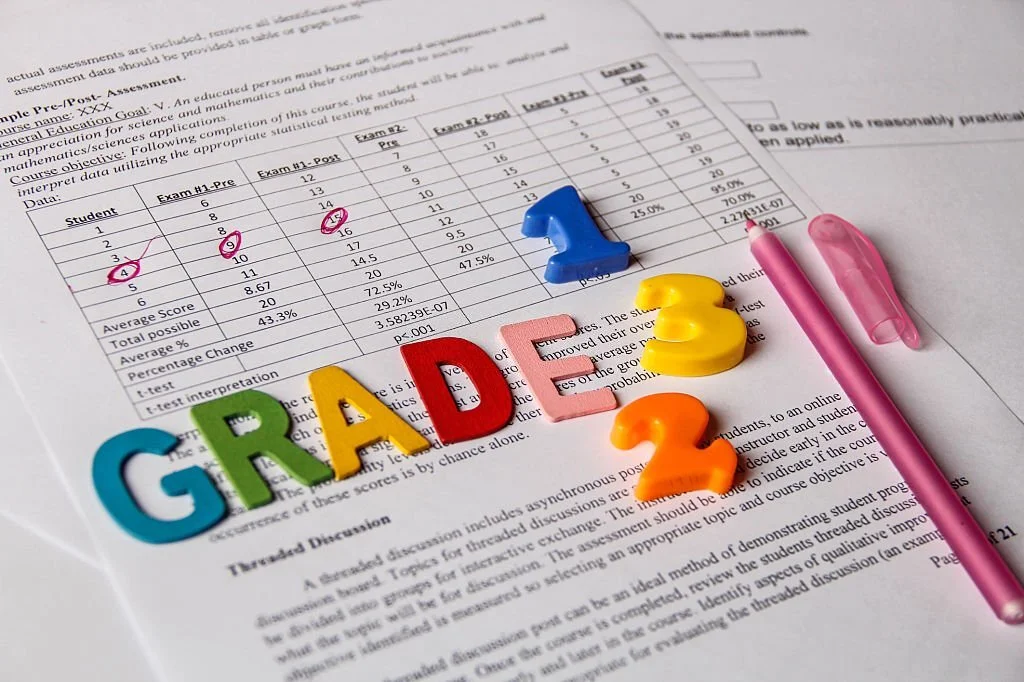Table of Contents
In the area of education, one acronym that holds sizable weight and significance is GCSE, which stands for General Certificate of Secondary Education. If you or your infant is presently navigating the British training machine, you’ve probably encountered this period, GCSEs are a pivotal factor in a student’s educational adventure, and know-how do GCSE grades work?, mainly inside the new GCSE 9-1 Marks and Grades machine, is crucial. In this comprehensive guide, we will delve deep into the intricacies of GCSE grading, helping you decode this device comfortably.
A Brief Overview of How do GCSE Grades Work?
Before we dive into the specifics of the GCSE 9-1 Marks and Grades machine, it is important to grasp the fundamentals of what GCSEs are. GCSEs are a series of tests taken by college students in England, Wales, and Northern Ireland. These checks are typically undertaken with the aid of college students aged 14 to 16, normally in their penultimate year of Secondary Education.
GCSEs are designed to assess a huge variety of topics, consisting of arithmetic, technology, humanities, languages, and the arts. The effects of these checks remain of huge importance as they not only mirror a scholar’s educational prowess but also impact their future educational and career opportunities.
The Transition to How do GCSE Grades Work?
Historically, GCSEs had been graded on an alphabetical scale from A* to G, with A* being the best practicable grade. However, in 2017, an enormous trade passed in the UK schooling gadget with the advent of the GCSE 9-1 Marks and Grades gadget. This shift turned into initiated to offer greater differentiation between scholar achievements and lift the overall general training.
Under the nine-1 device, grades nine, eight, and seven are equivalent to the antique A* and A grades, whilst grades 6, 5, and four are comparable to B and C grades. Grade 4 is frequently considered a ‘popular skip’, and grades 5 and above are deemed ‘sturdy passes’. Grades 3, 2, and 1 are equivalent to the old D, E, F, and G grades, with grade 1 being the bottom manageable grade.
How do GCSE Grades Work Assessed?
Understanding how How do GCSE grades work? and assessment is pivotal in comprehending the grading machine. GCSE subjects are divided into units or modules, with every unit covering a specific subject matter or place of examination. Depending on the challenge, evaluation methods may additionally vary and may consist of written tests, practical assessments, coursework, and controlled checks.

The weightage of every assessment thing varies between subjects. For instance, in science topics, practical tests contribute to a considerable part of the very last GCSE 9-1 Marks and Grades. In comparison, topics like records or English literature depend more heavily on written tests and coursework.
Interpreting the Results
How do GCSE grades work? When students obtain their GCSE consequences, they may see a series of numbers and letters, reflecting their grades. To illustrate how this works, please do not forget an instance:
• Grade nine: Exceptional overall performance, equivalent to the old A*
• Grade 7-eight: Strong overall performance, equal to the vintage A and A*
• Grade 5-6: Good overall performance, equivalent to the vintage B and C
• Grade 4: Standard bypass, equivalent to the vintage C
• Grade 3: D grade equal
• Grade 2: E-F grade equal
• Grade 1: G grade equivalent
Students will usually acquire a grade for each subject they have taken. For instance, if a pupil acquired grades 7, 6, and 5 in their English, Mathematics, and Science GCSEs, respectively, this would imply a sturdy overall performance in English, a great overall performance in Mathematics, and a general skip in Science.
The Importance of How do GCSE grades work?
GCSE 9-1 Marks and Grades maintain vast significance beyond the classroom. They are frequently used as a benchmark for college admissions, apprenticeship packages, and destiny employment opportunities. Many colleges and employers have specific GCSE grade necessities for entry into their programs or positions.

Additionally, a few college students might also choose to maintain their training using pursuing A-tiers or vocational guides. In such instances, GCSE grades can dictate which topics a student is eligible to observe at the following stage.
Preparing for GCSE 9-1 Marks and Grades
How do GCSE grades work? Achieving the desired GCSE grades requires dedication and a well-structured study plan. Here are some valuable tips to help students prepare effectively:
1. Start Early
Begin your revision well in advance. Cramming at the last minute rarely leads to success.
2. Understand the Syllabus
Familiarize yourself with the topics and concepts outlined in the GCSE syllabus for each subject. Ensure you’ve covered all necessary areas.
3. Practice Past Papers
Practice makes perfect. Work through past exam papers to get a feel for the types of questions you may encounter.
4. Seek Help if Needed
If you’re struggling with a particular subject or topic, don’t hesitate to ask your teachers for assistance. They are there to support your learning journey.
5. Maintain a Balanced Lifestyle
While studying is crucial, don’t neglect your physical and mental well-being. A balanced lifestyle with adequate rest is essential for optimal performance. Do read more about Short Prayer for Healing

Table of How do GCSE grades work?:
| Grade | Marks |
|---|---|
| 9 | 90-100 |
| 8 | 80-89 |
| 7 | 70-79 |
| 6 | 60-69 |
| 5 | 50-59 |
| 4 | 40-49 |
| 3 | 30-39 |
| 2 | 20-29 |
| 1 | 1-19 |
| U | Ungraded |
Frequently Asked Questions (How do GCSE grades work?)
1. What is the significance of the transition to the 9-1 grading system?
The transition to the 9-1 grading system was initiated to provide more differentiation between student achievements and raise the overall standard of education. It offers a more precise assessment of a student’s performance compared to the previous alphabetical grading system.
2. How do colleges and employers use GCSE grades?
Colleges and employers regularly use GCSE grades as a benchmark for admissions and employment. Many have particular grade requirements for entry into their packages or positions, making GCSE grades a crucial component in shaping one’s academic and professional direction.
3. What should I do if I’m disappointed with my GCSE effects?
If you are unhappy with your GCSE effects, you can discover alternatives along with resitting the checks, pursuing opportunity educational paths, or seeking recommendations from teachers and career counselors to decide the best direction of motion for your specific state of affairs.
4. How can I effectively balance my GCSE study schedule?
Balancing your GCSE study schedule involves time management and maintaining a healthy lifestyle. Ensure you allocate dedicated study time while also making time for relaxation and physical activity. Seek support from teachers, peers, or mentors if needed.
Wrapping-Up How do GCSE grades work?
GCSEs are a pivotal stage in a student’s educational journey. Understanding the GCSE 9-1 Marks and Grades system and how GCSEs are assessed is crucial for students, parents, and educators alike. These grades not only reflect a student’s academic prowess but also open doors to future educational and career opportunities. By preparing effectively and approaching these exams with diligence, students can strive for the grades they aspire to achieve and embark on a path to a bright future.





